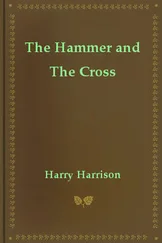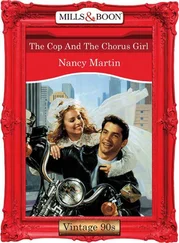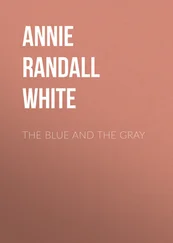Gilbert Chesterton - The Ball and the Cross
Здесь есть возможность читать онлайн «Gilbert Chesterton - The Ball and the Cross» весь текст электронной книги совершенно бесплатно (целиком полную версию без сокращений). В некоторых случаях можно слушать аудио, скачать через торрент в формате fb2 и присутствует краткое содержание. Жанр: Классическая проза, на английском языке. Описание произведения, (предисловие) а так же отзывы посетителей доступны на портале библиотеки ЛибКат.
- Название:The Ball and the Cross
- Автор:
- Жанр:
- Год:неизвестен
- ISBN:нет данных
- Рейтинг книги:5 / 5. Голосов: 1
-
Избранное:Добавить в избранное
- Отзывы:
-
Ваша оценка:
- 100
- 1
- 2
- 3
- 4
- 5
The Ball and the Cross: краткое содержание, описание и аннотация
Предлагаем к чтению аннотацию, описание, краткое содержание или предисловие (зависит от того, что написал сам автор книги «The Ball and the Cross»). Если вы не нашли необходимую информацию о книге — напишите в комментариях, мы постараемся отыскать её.
The Ball and the Cross — читать онлайн бесплатно полную книгу (весь текст) целиком
Ниже представлен текст книги, разбитый по страницам. Система сохранения места последней прочитанной страницы, позволяет с удобством читать онлайн бесплатно книгу «The Ball and the Cross», без необходимости каждый раз заново искать на чём Вы остановились. Поставьте закладку, и сможете в любой момент перейти на страницу, на которой закончили чтение.
Интервал:
Закладка:
“Quite so!” said the doctor, mildly. “I can understand that you were startled.”
Turnbull had expected him to ask what place was the headquarters of the new exhilarating game, and who were the male and female enthusiasts who had brought it to such perfection; in fact, Turnbull was busy making up these personal and topographical particulars. As the doctor did not ask the question, he grew slightly uneasy, and risked the question: “I hope you will accept my assurance that the thing was an accident and that no intrusion was meant.”
“Oh, yes, sir,” replied the doctor, smiling, “I accept everything that you say.”
“In that case,” said Turnbull, rising genially, “we must not further interrupt your important duties. I suppose there will be someone to let us out?”
“No,” said the doctor, still smiling steadily and pleasantly, “there will be no one to let you out.”
“Can we let ourselves out, then?” asked Turnbull, in some surprise.
“Why, of course not,” said the beaming scientist; “think how dangerous that would be in a place like this.”
“Then, how the devil are we to get out?” cried Turnbull, losing his manners for the first time.
“It is a question of time, of receptivity, and treatment,” said the doctor, arching his eyebrows indifferently. “I do not regard either of your cases as incurable.”
And with that the man of the world was struck dumb, and, as in all intolerable moments, the word was with the unworldly.
MacIan took one stride to the table, leant across it, and said: “We can’t stop here, we’re not mad people!”
“We don’t use the crude phrase,” said the doctor, smiling at his patent-leather boots.
“But you can’t think us mad,” thundered MacIan. “You never saw us before. You know nothing about us. You haven’t even examined us.”
The doctor threw back his head and beard. “Oh, yes,” he said, “very thoroughly.”
“But you can’t shut a man up on your mere impressions without documents or certificates or anything?”
The doctor got languidly to his feet. “Quite so,” he said. “You certainly ought to see the documents.”
He went across to the curious mock book-shelves and took down one of the flat mahogany cases. This he opened with a curious key at his watch-chain, and laying back a flap revealed a quire of foolscap covered with close but quite clear writing. The first three words were in such large copy-book hand that they caught the eye even at a distance. They were: “MacIan, Evan Stuart.”
Evan bent his angry eagle face over it; yet something blurred it and he could never swear he saw it distinctly. He saw something that began: “Prenatal influences predisposing to mania. Grandfather believed in return of the Stuarts. Mother carried bone of St. Eulalia with which she touched children in sickness. Marked religious mania at early age–”
Evan fell back and fought for his speech. “Oh!” he burst out at last. “Oh! if all this world I have walked in had been as sane as my mother was.”
Then he compressed his temples with his hands, as if to crush them. And then lifted suddenly a face that looked fresh and young, as if he had dipped and washed it in some holy well.
“Very well,” he cried; “I will take the sour with the sweet. I will pay the penalty of having enjoyed God in this monstrous modern earth that cannot enjoy man or beast. I will die happy in your madhouse, only because I know what I know. Let it be granted, then–MacIan is a mystic; MacIan is a maniac. But this honest shopkeeper and editor whom I have dragged on my inhuman escapades, you cannot keep him. He will go free, thank God, he is not down in any damned document. His ancestor, I am certain, did not die at Culloden. His mother, I swear, had no relics. Let my friend out of your front door, and as for me–”
The doctor had already gone across to the laden shelves, and after a few minutes’ short-sighted peering, had pulled down another parallelogram of dark-red wood.
This also he unlocked on the table, and with the same unerring egotistic eye on of the company saw the words, written in large letters: “Turnbull, James.”
Hitherto Turnbull himself had somewhat scornfully surrendered his part in the whole business; but he was too honest and unaffected not to start at his own name. After the name, the inscription appeared to run: “Unique case of Eleutheromania. Parentage, as so often in such cases, prosaic and healthy. Eleutheromaniac signs occurred early, however, leading him to attach himself to the individualist Bradlaugh. Recent outbreak of pure anarchy–”
Turnbull slammed the case to, almost smashing it, and said with a burst of savage laughter: “Oh! come along, MacIan; I don’t care so much, even about getting out of the madhouse, if only we get out of this room. You were right enough, MacIan, when you spoke about– about mad doctors.”
Somehow they found themselves outside in the cool, green garden, and then, after a stunned silence, Turnbull said: “There is one thing that was puzzling me all the time, and I understand it now.”
“What do you mean?” asked Evan.
“No man by will or wit,” answered Turnbull, “can get out of this garden; and yet we got into it merely by jumping over a garden wall. The whole thing explains itself easily enough. That undefended wall was an open trap. It was a trap laid for two celebrated lunatics. They saw us get in right enough. And they will see that we do not get out.”
Evan gazed at the garden wall, gravely for more than a minute, and then he nodded without a word.
XV. THE DREAM OF MACIAN
The system of espionage in the asylum was so effective and complete that in practice the patients could often enjoy a sense of almost complete solitude. They could stray up so near to the wall in an apparently unwatched garden as to find it easy to jump over it. They would only have found the error of their calculations if they had tried to jump.
Under this insulting liberty, in this artificial loneliness, Evan MacIan was in the habit of creeping out into the garden after dark–especially upon moonlight nights. The moon, indeed, was for him always a positive magnet in a manner somewhat hard to explain to those of a robuster attitude. Evidently, Apollo is to the full as poetical as Diana; but it is not a question of poetry in the matured and intellectual sense of the word. It is a question of a certain solid and childish fancy. The sun is in the strict and literal sense invisible; that is to say, that by our bodily eyes it cannot properly be seen. But the moon is a much simpler thing; a naked and nursery sort of thing. It hangs in the sky quite solid and quite silver and quite useless; it is one huge celestial snowball. It was at least some such infantile facts and fancies which led Evan again and again during his dehumanized imprisonment to go out as if to shoot the moon.
He was out in the garden on one such luminous and ghostly night, when the steady moonshine toned down all the colours of the garden until almost the strongest tints to be seen were the strong soft blue of the sky and the large lemon moon. He was walking with his face turned up to it in that rather half-witted fashion which might have excused the error of his keepers; and as he gazed he became aware of something little and lustrous flying close to the lustrous orb, like a bright chip knocked off the moon. At first he thought it was a mere sparkle or refraction in his own eyesight; he blinked and cleared his eyes. Then he thought it was a falling star; only it did not fall. It jerked awkwardly up and down in a way unknown among meteors and strangely reminiscent of the works of man. The next moment the thing drove right across the moon, and from being silver upon blue, suddenly became black upon silver; then although it passed the field of light in a flash its outline was unmistakable though eccentric. It was a flying ship.
Читать дальшеИнтервал:
Закладка:
Похожие книги на «The Ball and the Cross»
Представляем Вашему вниманию похожие книги на «The Ball and the Cross» списком для выбора. Мы отобрали схожую по названию и смыслу литературу в надежде предоставить читателям больше вариантов отыскать новые, интересные, ещё непрочитанные произведения.
Обсуждение, отзывы о книге «The Ball and the Cross» и просто собственные мнения читателей. Оставьте ваши комментарии, напишите, что Вы думаете о произведении, его смысле или главных героях. Укажите что конкретно понравилось, а что нет, и почему Вы так считаете.









